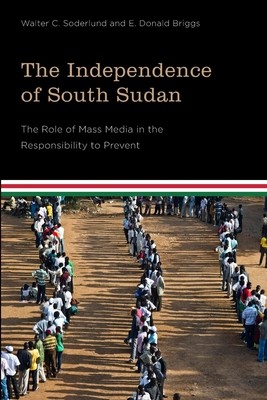
- We will send in 10–14 business days.
- Author: Walter C Soderlund
- Publisher: Wilfrid Laurier University Press
- Year: 2014
- Pages: 165
- ISBN-10: 1771121173
- ISBN-13: 9781771121170
- Format: 15.2 x 22.6 x 1.3 cm, minkšti viršeliai
- Language: English
- SAVE -10% with code: EXTRA
Reviews
Description
The Responsibility to Protect, the report of the International Commission on Intervention and State Sovereignty (ICISS), focused on three international responsibilities in the area of human security: the responsibility to prevent, the responsibility to react, and the responsibility to rebuild. The report acknowledged the difficulty of identifying countries likely to experience widespread civil violence and then predicting when this would occur. But the authors of this book submit that if ever a case of a "responsibly to prevent" was possible to anticipate, South Sudan was it.
A Comprehensive Peace Agreement (CPA) ended the Sudanese second civil war in 2005 with a call for a referendum to be held in South Sudan in 2011 to determine the region's future, In the event, an overwhelming majority voted for independence for the region. The question that motivated this book is whether the CPA would set in motion a process resulting in yet another brutal conflict, and, if that conflict was widely predicted, what should be the response of the international community in terms of "responsibility to prevent"?
Mass media coverage has been identified as an important factor in mobilizing the international community into action in crisis and potential crisis situations; however, the impact of media reporting on actual decision-making is unclear. Thirty-plus years of research has demonstrated consistent agenda-setting effects, while a more recent stream of research has confirmed significant framing effects, the latter most likely to occur in cases where advocacy framing is used. This book examines the way in which the press in Canada and the United States interpreted the potential for violence that accompanied South Sudan's independence in 2011, and whether or not their governments had a responsibility to prevent.EXTRA 10 % discount with code: EXTRA
The promotion ends in 22d.13:07:02
The discount code is valid when purchasing from 10 €. Discounts do not stack.
- Author: Walter C Soderlund
- Publisher: Wilfrid Laurier University Press
- Year: 2014
- Pages: 165
- ISBN-10: 1771121173
- ISBN-13: 9781771121170
- Format: 15.2 x 22.6 x 1.3 cm, minkšti viršeliai
- Language: English English
The Responsibility to Protect, the report of the International Commission on Intervention and State Sovereignty (ICISS), focused on three international responsibilities in the area of human security: the responsibility to prevent, the responsibility to react, and the responsibility to rebuild. The report acknowledged the difficulty of identifying countries likely to experience widespread civil violence and then predicting when this would occur. But the authors of this book submit that if ever a case of a "responsibly to prevent" was possible to anticipate, South Sudan was it.
A Comprehensive Peace Agreement (CPA) ended the Sudanese second civil war in 2005 with a call for a referendum to be held in South Sudan in 2011 to determine the region's future, In the event, an overwhelming majority voted for independence for the region. The question that motivated this book is whether the CPA would set in motion a process resulting in yet another brutal conflict, and, if that conflict was widely predicted, what should be the response of the international community in terms of "responsibility to prevent"?
Mass media coverage has been identified as an important factor in mobilizing the international community into action in crisis and potential crisis situations; however, the impact of media reporting on actual decision-making is unclear. Thirty-plus years of research has demonstrated consistent agenda-setting effects, while a more recent stream of research has confirmed significant framing effects, the latter most likely to occur in cases where advocacy framing is used. This book examines the way in which the press in Canada and the United States interpreted the potential for violence that accompanied South Sudan's independence in 2011, and whether or not their governments had a responsibility to prevent.

Reviews